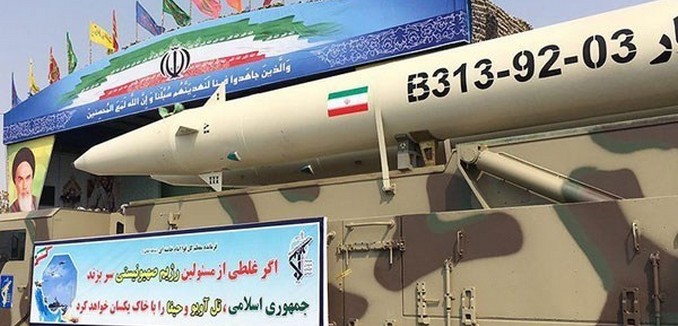While Democratic and Republican leaders in Washington have made defeating the Islamic State a top priority, “that’s not nearly as important as confronting the challenge posed by Iran,” former Israeli defense minister Moshe Ya’alon wrote in a Los Angeles Times op-ed published Thursday.
Ya’alon said that while last year’s nuclear deal had certain benefits — namely delaying Iran’s nuclear program for 10 to 15 years, reducing tensions with the country, opening markets there, and increasing cooperation in fighting the Islamic State — only one of those gains, the delay in the nuclear program, came at Iran’s expense. Iran therefore “gained much more than it gave up,” Ya’alon wrote.
Furthermore, because the United States and its partners had an “exaggerated fear” of doing something that might lead to Iran reneging on the deal, the Islamic Republic gained even more benefits, including a “wide latitude to advance its influence throughout the region as it no longer fears a U.S.-led ‘military option.’”
The evidence of Iran’s rogue behavior is overwhelming. It is the prime backer of the genocidal Syrian regime, providing President Bashar Assad with funds, weapons and the support of Shiite militias. It supplies weapons, money and training to Hezbollah, using it as a strategic tool to undermine the legitimate role of the Lebanese government. In Yemen, Iran fans conflict by sending arms to the Houthi rebels. Elsewhere in the Arabian peninsula, it uses proxies to undermine Bahrain and Saudi Arabia. In Israel’s neighborhood, Iran finances Palestinian Islamic Jihad and certain Hamas elements and provides them with the know-how to produce rockets, drones and other weapons. None of this has abated with the Iran nuclear deal; to the contrary, Iran has grown more aggressive on all fronts.
Given that Iran had to give up little in order to expand its regional influence so dramatically, Ya’alon commented that Iran’s negotiators “played a weak hand superbly.” Consequently, when the toughest restrictions on Iran’s nuclear deal expire in 14 years, the world will be in a much weaker position to confront its nuclear program.
In the grand scheme of things, 14 years amount to “the blink of an eye,” Ya’alon observed. And if, for example, other international crises distract from Iranian cheating, that timeframe could be shortened.
Ya’alon urged “concerned nations” to cooperate and prevent Iran “from exploiting the nuclear deal to redraw the political map of the Middle East in its favor.” He offered a number recommendations as to how this could be accomplished:
Such steps would include ensuring strict inspection of Iran’s nuclear facilities — and not just by the International Atomic Energy Agency. After all, the vast majority of Iran’s nuclear violations were exposed by western intelligence agencies, not the IAEA. In addition, concerned nations need to pressure Iran on its ballistic missile program and support for terrorism. They must also work to enforce U.N. Security Council resolutions that prohibit Iran’s proliferation of weapons throughout the region. None of these steps, by the way, violates the terms of the nuclear deal.
He added that action could be taken to “repair the impression that the West — led by the United States — views Iran as part of the solution to the problems of the Middle East, rather than the chief source of the region’s instability and radicalism.”
Ya’alon observed that proponents of the nuclear agreement who believed that it would moderate Iran “regrettably suffer from wishful thinking,” and that this understanding is shared across the Middle East.
“Today, Arabs and Israelis are in the same boat, facing Iranian-backed threats all around us; in terms of how to address these threats, we are also generally on the same page,” he wrote.
What is needed is “leadership” to confront the Iranian threat from traditional Western allies, and an American president who could “lead a campaign to pressure Iran to end its destabilizing policies” with support from both Israel and Arab nations, Ya’alon concluded.
Speaking at the Washington Institute for Near East Policy earlier this month, Ya’alon said that he didn’t “know about any” Israeli security officials who viewed the nuclear deal as a good one.
His comments regarding the region-wide concerns over Iran’s nuclear aspirations reflect those shared by Israeli Prime Minister Benjamin Netanyahu in a March interview with NBC. “When Arabs and Israelis agree on something, it’s worth paying attention,” Netanyahu said at the time.
Numerous experts — including Foreign Policy editor David Rothkopf; former State Department official Aaron David Miller; Washington Institute of Near East Policy fellows Mehdi Khalaji, Soner Cagaptay, and James Jeffrey; and former Secretaries of State Henry Kissinger and George Shultz — warned last year that the nuclear deal would stoke Iran’s regional ambitions rather than moderate its behavior.
[Photo: Fars News ]




